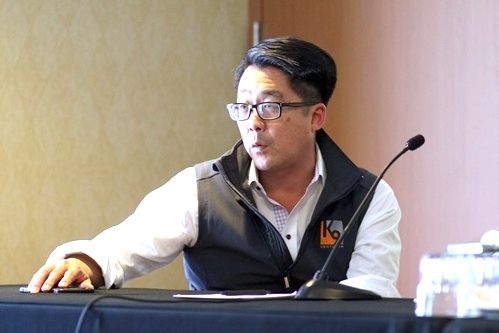Episode Summary
Michael started Cendana Capital about 10 years ago with the idea for two lines of business: creating a “fund of funds” at the seed stage, and investing directly into the portfolio companies of its fund managers.
Cendana Capital has since become become one of the most active backers of new and emerging VC funds, and is an LP in top firms including Bowery Capital, Collaborative Fund, Forerunner Ventures, Founder Collective, Freestyle Capital, IA Ventures, Lerer Hippeau, MHS Capital, Susa Ventures, Uncork VC (fka SoftTech VC), K9 Ventures, Mucker Capital, Notation Capital, PivotNorth Capital, Rhapsody Venture Partners, Blackbird Ventures, ChinaRock Capital and dozens more.
In this episode of How I Raised It, Michael describes the struggles he faced raising his first funds and how he overcame them. Primarily, he explains his belief that a “fast no” is the preferred rejection, and how to get it (i.e. don’t set a deadline).
“I think if you push someone too hard, obviously, they'll just say ‘hey, it's not fit for us right now.’ But in reality, that's probably a better answer than just sitting around wondering if they're going to do anything,” he says.
“I would just try to articulate the reasons why it's important to know whether it's a fit or not.”
In his search for funding, Michael went after primarily endowments and foundations, and ended up getting connected with a family office in Philadelphia through a friend. That organization said it would give him up to $18 million to go and make commitments to funds, so he started doing just that. Soon after, the University of Texas became Cendana Capital’s largest investor.
In this episode, Michael also addresses what he’s looking for when being pitched by entrepreneurs and emerging venture managers.
“We do look at the networks of people, we really delve into where those nodes are, and you can imagine that we already have a lot of portfolio funds,” he says. “We also don't want to have a ton of overlap. So we're looking for groups that are complementary to the existing portfolio.”
How He Raised It
💰 Who: Michael Kim
💰 Company: Cendana Capital
💰 Where to find him: Twitter | LinkedIn
💰 Money quote: “We really like narratives. So it's not so much flipping through a [pitch] deck, because we'll have read through the deck already. It's really more about hearing their own founder journey.”
💰 Noteworthy: Michael says he always responds to people who reach out — regardless if it’s a cold email, LinkedIn message, direct message on Twitter, etc.
Capital Gains
[0:48] What he does 👉 Michael started Cendana Capital to do two things: create a “fund of funds” — aka raise capital then invest it in venture capital firms, specifically at the seed stage, and also invest directly into the portfolio companies of its fund managers.
[2:06] How it all started 👉 Even though it wasn’t what he went to undergrad for — he first wanted to pursue a career in international diplomacy — Michael ultimately went into banking. Once he had several years of experience, he formed Cendana Capital.
[7:01] What he’s accomplished 👉 Michael says that when he started in 2010, there were probably 10 to 15 seed funds, whereas today, there's probably over 1,000 in the U.S. He believes his firm was one of the first to identify seed venture as “de facto early-stage venture,” and might have been the first to offer a vehicle for large institutional investors to access that space.
[7:42] Failure before success 👉 It wasn’t easy for Michael to raise capital. It took him more than 18 months to raise the first fund, and 99.99% of the people he pitched said no. But when a family office said they’d give him up to $18 million to go and make commitments to funds, everything changed.
[13:50] A “fast no” is always better 👉 It’s the unknown after a big pitch that causes the most stress, Michael argues, so he believes pushing for an answer as early as possible — even if the answer is “no.”
[18:08] The why behind his latest venture 👉 Michael and his team created the Cendana Nano fund, which is a $30 million fund. They started it to capture opportunities created by small funds.
[23:46] Fund managers need credibility to lead their investments 👉 “If you talk to our portfolio funds, they will say that the best source of deal flow is other founders,” Michael says, which he believes is because they can empathize with the founder journey.
[33:58] “The Social Network” changed everything 👉 Michael says Facebook’s story changed the stereotype of who can be a founder and how they go about doing it, so more young people believe they don’t have to go to a company like Morgan Stanley after graduating, they can just try to start their business right away.
[29:24] Don’t be afraid to reach out 👉 The philosophy of his firm, Michael says, is to take a meeting with anyone who emails them with a pitch (even though it might take a bit to get back to them), because you never know what people are going to bring to the table.
Top quotes from the episode:
“I actually raised a small pool of capital to provide me with runway. And so in a way, I raised my own seed round — I raised a million dollars.”
“If you're a new fund trying to raise capital, having a first close is very, very important because again, you're moving from a PowerPoint to being a real fund. So you're ultimately creating scarcity value.”
“For our main fund, we look for fund managers who have the credibility to lead their investments, because we think ownership is super important.”


